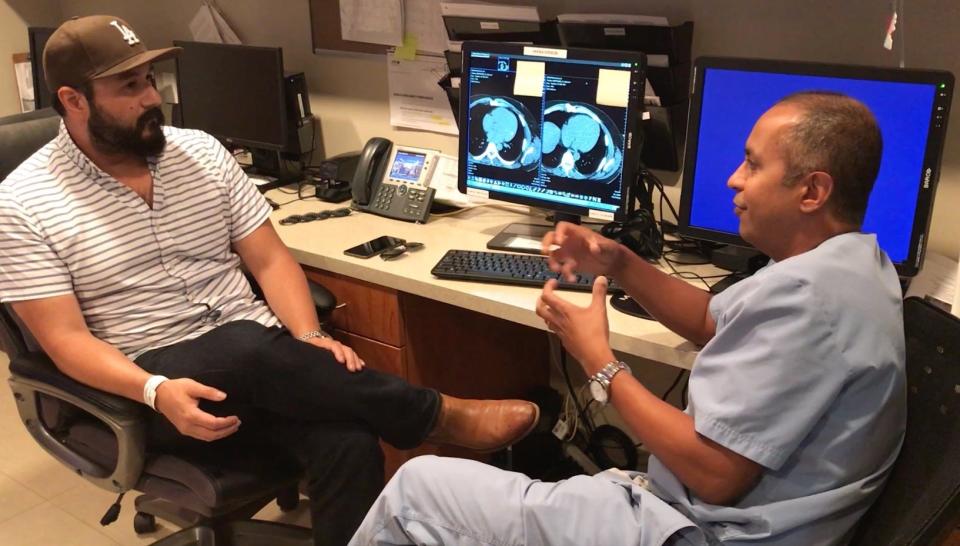Is your heart ready for winter? Tips for protecting yourself during cold weather
We might think of classic images of a person shoveling snow and having a heart attack, but it's not just physical exertion that increases rates of heart and blood-related events in the winter.
Actual air temperatures and swings in those temperatures, as a 2018 study in Sweden confirmed, have a lot to do with why more heart attacks, heart failure, strokes, aneurysms and atrial fibrillation events happen in winter.
Dr. Vivek Goswami, cardiologist with Heart Hospital of Austin and Austin Heart, explained that cold weather causes muscles to constrict.
The walls of the arteries are made up of smooth muscles. Constricting those muscles decreases the blood flow and causes the heart to have to pump harder and blood pressure to increase. The blood also clots more easily, which is why strokes and aneurysms can happen.
Winter weather: 50-degree temperature swing possible on New Year's Day in Austin
How cold does it have to get for the heart to be put under this stress? There isn't an absolute number, but anything below 30 degrees could lead to this constricting of muscles, Goswami said. Also, sometimes rapid changes in temperature affect the heart this way. Texas is known for its 30-, 40- and even 50-degree swings in temperature, and this winter has been no different.
Weather turned deadly: 'A terrible loss': Austin saw days of deaths and cold in February outages during Texas freeze
Last year, Goswami's office saw twice the number of patients the week after the February freeze as in a typical week because of delayed care during the freeze week, he said.
Another factor is the decreased hours of light in our days, which can cause an increase in depression, Goswami said. We're less likely to want to do things that are good for our hearts such as exercise or eat heathy foods when we're depressed.
Winter also comes with events that can increase the risks of a heart incident.

Goswami said there is something informally called "holiday heart syndrome." Doctors know that the days surrounding a holiday tend to see more people with heart-related events.
During the winter holidays, people overindulge in food and alcoholic beverages, and they don't exercise as much. They travel and forget to take medications or are off their routines. People also don't want to bother anyone when they start having symptoms and often wait until their symptoms are severe instead of calling a doctor earlier.
Ready for winter: Central Texas, get winter ready: How to prepare home, car, pantry and more
Goswami recommended that people do these things to prevent a winter heart event:
Get screened for heart disease before a first heart attack. Annual monitoring of blood pressure, blood chemistry and cholesterol is important at any age. Do a screening check with a cardiologist by age 45 for men and 55 for women. That's about 10 years before most people experience a heart event. Start those earlier if you have risk factors such as high blood pressure or high cholesterol or have a family history of heart disease.
Stick with routines such as taking medication properly, eating healthy food and exercising.
Stay warm when going outside by dressing in layers and wearing proper winter clothing. This is especially important as we age and have thinner skin and less fat to keep us warm.
Don't wait to get help if you experience symptoms.
Know the warning signs of heart attacks and heart disease. It can be different for men and women, but often it's a discomfort in the center of the chest. Sometimes that discomfort is pain radiating down the left arm or in the jaw. For women, it can be more fatigue, back pain, even an upset stomach. Also look for a change in exercise ability, such as being less able to climb stairs or walk a long distance.
For strokes, look for face drooping, inability to smile properly or equally on both sides, slurring of words and difficulty raising the arms.
This article originally appeared on Austin American-Statesman: Tips for preventing heart attack, stroke, aneurysm during cold weather

